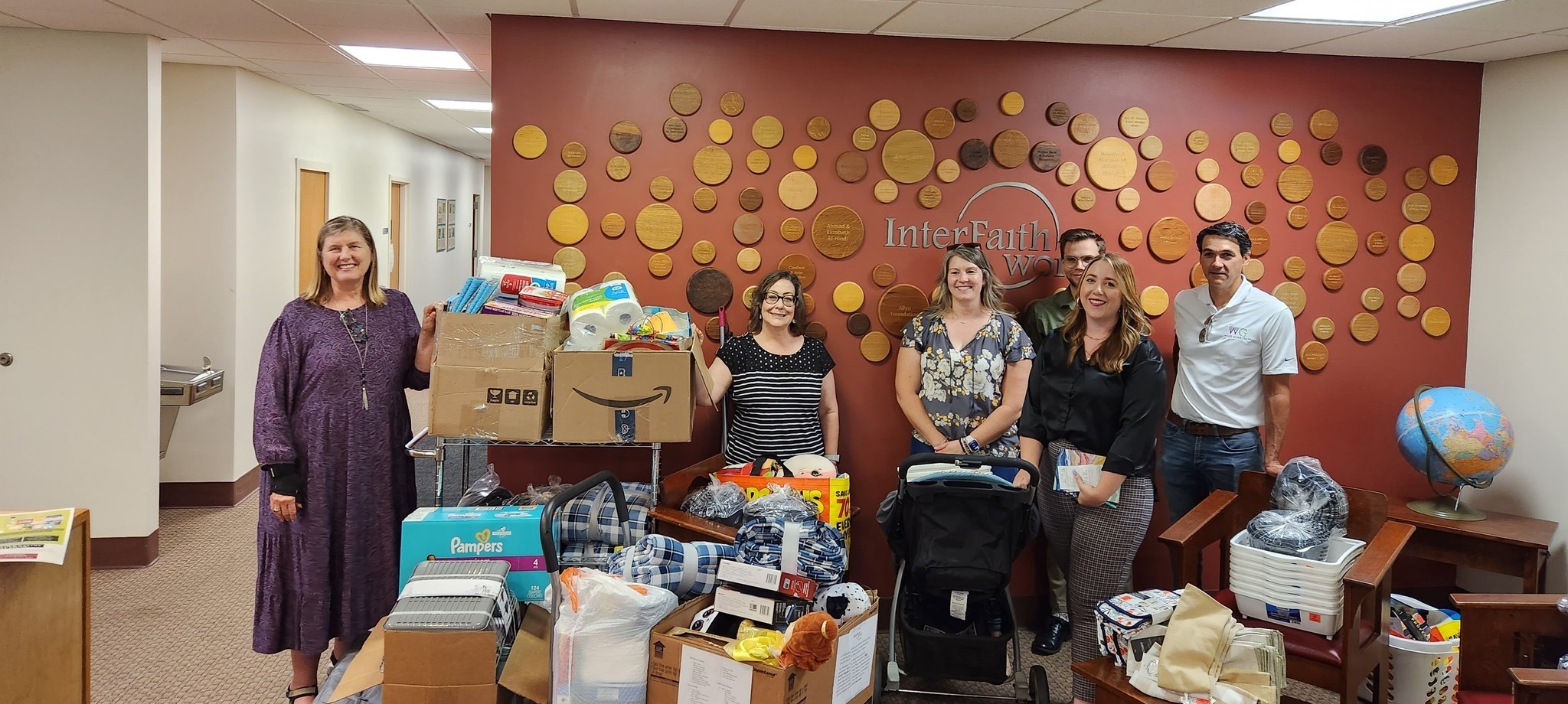
It started with milk deliveries — “gallons and gallons and gallons of milk.”
At the beginning of the COVID-19 Pandemic, The American Dairy Association had a milk surplus, and needed community support to distribute it before it spoiled. ADA organizers reached out to Central New York’s InterFaith Works for help.
“So, we began to deliver milk to faith communities — synagogues, mosques, churches, black and brown churches, and because many of our agency programs were paused, we had time deliver all this milk,” said Bishop Colette Matthews-Carter, Director of IFW’s El-Hindi Center for Dialogue & Action. “ It was a huge blessing to people in our community.”
After seeing the overwhelming community response, InterFaith Works started to distribute food boxes, and a network of food pantries began to organically form. Now nearly three years later, IFW connects and helps support 32 grassroot food pantries and partners as a part of its Food Justice Program. It aims to deliver healthy food to diverse neighborhoods experiencing the highest rates of poverty and food insecurity in Syracuse.
The Food Justice Coordinator convenes monthly meetings, sets a legislative advocacy agenda, and aids pantries in securing additional support. They also oversee two community gardens, one which launched in June 2024. The organization estimates that just last year they were able to distribute more than 30,000 bags of food to families across Syracuse.
Matthews-Carter credits the success of the program to the partner pantries that have built community trust over decades of work. Sometimes asking for help can be difficult, she said, and that lining up for free food can sometimes feel “dehumanizing” if not done with care.
“Our pantries are in entrusted community spaces; they are in places where people do feel safe, and people feel like there is no judgment,” said Matthews-Carter.
This care is central to InterFaith Work’s overall mission to “Affirm Dignity.” This commitment to dignity extends to their work in food justice. Matthews-Carter said it’s important to have food that is culturally and religiously-appropriate.
Nearly 50,000 people in Onondaga County live with food insecurity due both to economic factors and lack of community food access. Almost half of Syracuse children live in poverty, and with inflation and SNAP reductions, the need for food access is growing. The term “food desert” is often used to describe neighborhoods that don’t have access to affordable, healthy food options due to the absence of grocery stores within an easy traveling distance. Some advocates say that we should use the term “food apartheid” instead, because it more accurately points to the structural injustices and disparities in food access faced by low-income communities and communities of color.
Food and hunger are not isolated issues, but part of larger systemic issues that affect everyone in our region.
“You can’t just talk about hunger without talking about housing, you can’t talk about health without talking about food,” said Qiana Williams, program officer at the Community Foundation. “So they’re all interrelated, because those are the things that are a mainstay for any human. Collaborations are critical to the success of this. The fact that InterFaith Works has galvanized these forces across sectors addressing health, hunger, and housing, in some very unique ways; it is very powerful, because it’s sending the message to folks in need that there are people who care about you, and you can go here and you can be supported.”
Williams said this program is ultimately an infrastructure success building initiative. The coordinator helps connect the community and aids smaller food pantries in securing food, applying for accreditation, and convening to share best practices.
Food justice and advocacy continues to gain momentum in Central York with community organizations like the Syracuse-Onondaga Food Systems Alliance (SOFSA) and IFW. Matthews-Carter said that there’s still work to be done. She anticipates continued support around food distribution and community-food production.
“I think the food justice conversation needs to be elevated in our community, Matthews-Carter said. “We’d like community stakeholders, faith communities, elected officials, school districts to break down their silos and just come together as a community to ensure that we have adequate and healthy food for future generations.”

Recent Comments